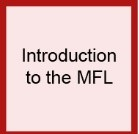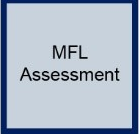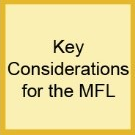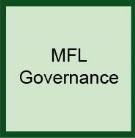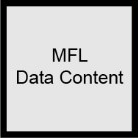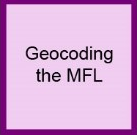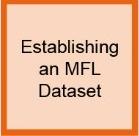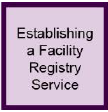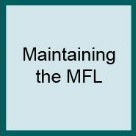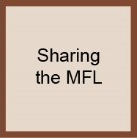OVERVIEW OF THE MFL RESOURCE PACKAGE
The Master Facility List (MFL) Resource Package was developed to guide countries through the process of establishing or strengthening their MFL. The MFL Resource Package describes the various elements that need to be in place to have a functional MFL including a governance structure, a comprehensive and up-to-date facility list, and a software platform to house and share the MFL. It discusses key decisions that need to be made during the planning and implementation phases; describes best practices for establishing, maintaining and sharing an MFL; and discusses resource needs. Additionally, the MFL Resource Package includes case studies from various countries, and links to tools and practical resources that implementation teams may find helpful.
Intended audience
The MFL Resource Package is targeted at individuals or organizations involved in the establishment of an MFL, whether they are involved in planning or implementation stages. The audience may include ministry officials, implementing partners, program managers or donors interested in understanding the process and requirements for establishing a fully functional MFL that is complete, updated and able to integrate with other information systems.
How to use the MFL resource package
The MFL Resource Package consists of a series of 10 modules that each address a specific facet of MFL implementation. The modules can be used together or individually, depending on the specific needs of the country and where they are on the development spectrum in achieving a fully functional MFL. Depending on the phase of MFL development a country is in, particular modules (or sections of modules) may be more relevant than others.
The first page of each module includes a summary of the module contents, key audiences for the module, and actions that should be completed before you implement the activities set forth in the module. The modules included in the resource package are:
The full resource package is available on WHO's website: http://www.who.int/healthinfo/MFL_Resource_Package_Jan2018.pdf?ua=1
Additional resource files can also be accessed here:
- MFL Resource Package Preface
- MFL Resource Package Glossary
- MFL Resource Package Acknowledgements
- Health Facility Registry – Curation Process
- MFL User Stories
- Tanzania MOHSW Health Facility Registry Data Collection Form
- Tanzania HFR Curation Tool User Guide
- Tanzania HFR Resource Map User Guide
- Tanzania MoH Draft Facility Data Specification
The development of an MFL is not necessarily a linear process. Various elements may be developed simultaneously and decisions may need to be revisited as things develop in a given area. We have made an effort to cross-reference sections of different modules that are relevant to particular stages of development.
Additional resources are linked or included in the document. The resources were developed by a range of partners who have kindly accepted to share them to aid others through MFL implementation.
MFL Resource Package - Facilitator's Guide
The facilitator's guide is intended for implementers familiar with the MFL resource package who want to train key stakeholders around key MFL concepts and also help countries to develop an action plan to implement or strengthen their MFL. The following resources (guide and module presentations) have been made available, currently in draft format:
MFL Resource Package development process
The MFL Resource Package was developed with extensive input from a team of persons who have been involved in various capacities in the development or management of MFLs in different countries. The content builds off of previous MFL guidance developed by the World Health Organization, MEASURE Evaluation and OpenHIE. This MFL Resource Package seeks to expand and update the guidance and make it accessible to a wide audience. Development of this Resource Package included a literature review, a series of in-depth interviews with key informants, a three-day meeting attended by approximately 30 experts in this area to discuss in detail the content and structure of the guidance document, and a thorough review process. The content reflects the experiences of government officials involved in the establishment and daily management of MFLs, and implementing partners who have supported various MFL strengthening activities including harmonizing facility lists, conducting data quality audits, geocoding lists, and creating facility registry services to render the MFL interoperable. A full list of contributors is found in the acknowledgment sections.
The Master Facility List (MFL) resource package describes what an MFLis and why it is important to have one. It defines basic terms and describes the various pieces that need to be in place to have a functional MFL. It provides tools for assessing current MFL activities, establishing best practices for governance and maintenance of the MFL, as well as best practices for data sharing, quality, and accuracy. The MFL Resource package consists of 10 modules.
